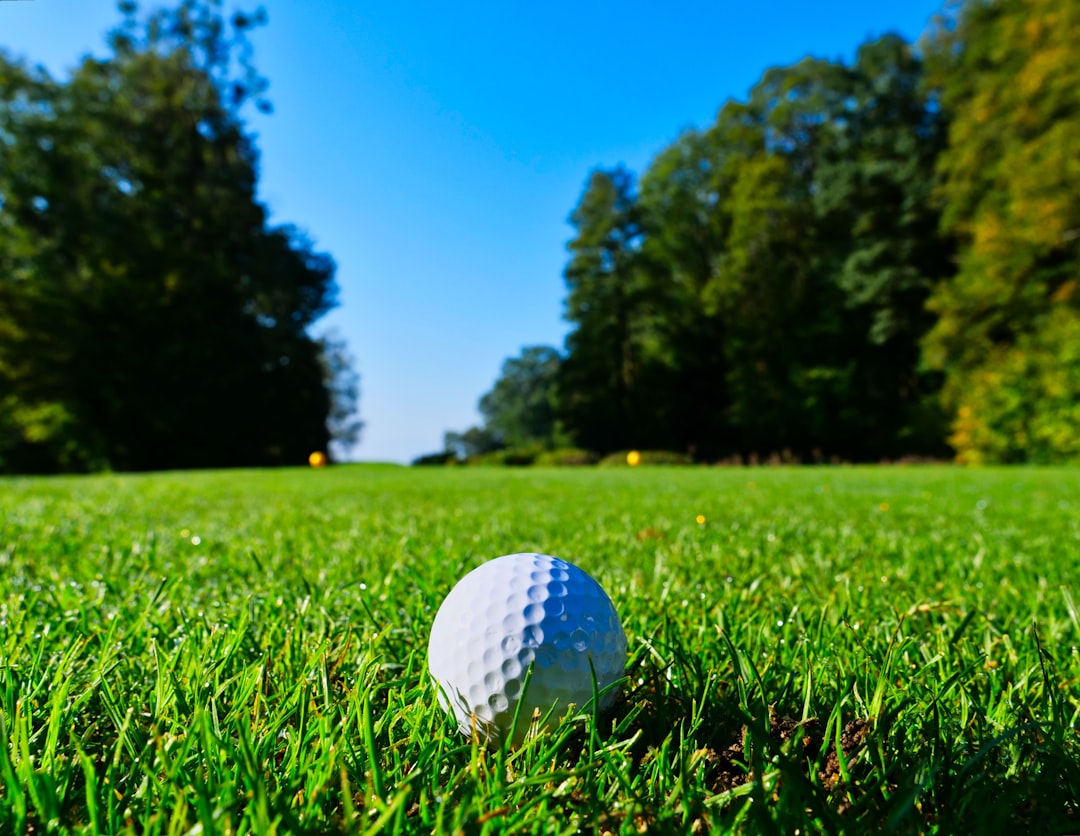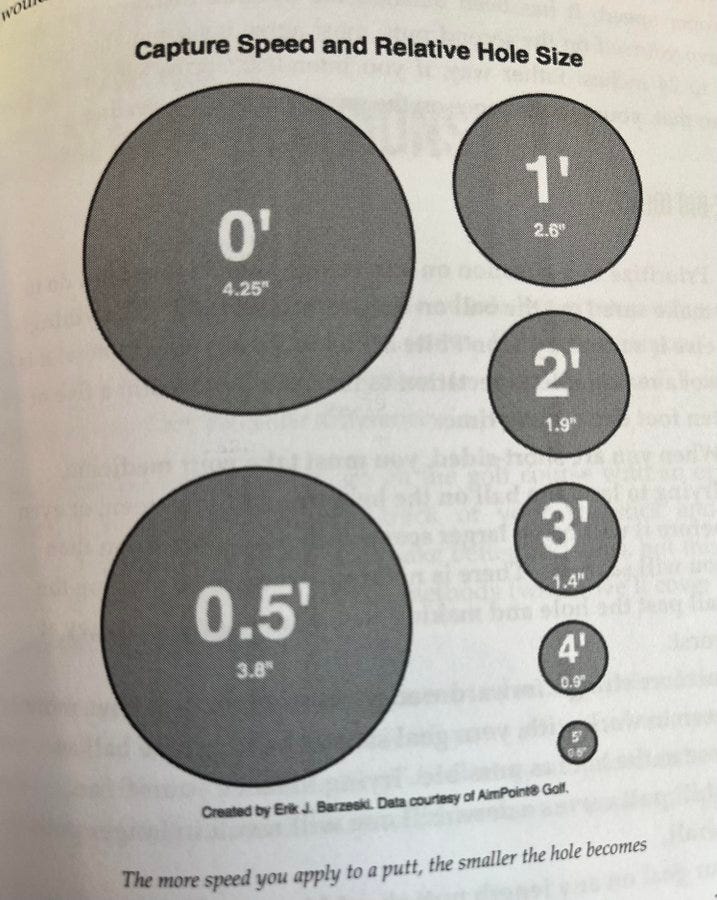
👋⛳Hello, my friend. Happy Masters week to those who celebrate. In honor of golf’s most-storied tournament, I thought I’d bring you some (hopefully) helpful advice today on how to improve at the world’s most frustrating game. The good news is that I’m not actually the one giving the advice. I recently spoke to a true expert and my goal here is to share the best of what I’ve learned. Also, make sure you read all the way to the end as I’ve got some awesome content recommendations this week.
Let’s do it!
Ep.30 - Jon Sherman - How to Get Better at Golf!
Jon Sherman is a renowned golf instructor, an author of several books, a coach to PGA tour professionals and a prolific teacher. I recently read Jon’s fantastic book, The Four Foundations of Golf, which is the most practical, easy-to-understand and useful golf book I’ve ever read. I was lucky enough to get the chance to interview him about it. Our mutual goal was to give listeners some real, tangible ways to improve their own golf games immediately. I think we accomplished that. I hope you’ll get a chance to listen. It’s on Apple Podcasts, Spotify, and for full video… YouTube.
My Top-10 Takeaways from Jon Sherman
Of course, I want you to listen to the full conversation and tell all your friends about it, but if you don’t have a chance, I get it. So, below is the Cliff’s Notes version of my top learnings. I hope a few of these resonate with you.
1/ Focus on patience, not perfection
Golf is a game of mistakes. Not permanent fixes. On any given day, at least one part of your game will NOT be working. To maximize enjoyment, we need to:
• Manage our expectations (see stats below)
• Adapt based on what we have THAT DAY
2/ Scoring is about avoiding double bogeys
You don't need to chase birdies! An 8 handicap only has .8 per round! But they also have < 2 double-bogeys per round. As you dive into the data, it's apparent, the delta is keeping big numbers off your scorecard, not firing birdies.
3/ Don't be a hero.
Tour players make bogey from recovery situations 80% of the time. So why do you and I try to hit "miracle" recovery shots? Next time you're in the woods, your mindset should immediately change to "Now, I'm playing for bogey."
Sexy? No.
Much more effective? Yes.
4/ Embrace your driver
Is hitting 3-wood off the tee a "safer" bet? For most golfers, no. The distance you give up costs you more strokes than you'd gain from improved accuracy. And when measured, 3-wood accuracy is effectively equivalent to driver, anyhow.
5/ Off the tee, aim away from trouble
Most golfers aim where they'd IDEALLY like the ball to go.
Not where it is statistically LIKELY to go.
Adjust your aim to account for a more realistic left/right dispersion even if that means aiming at the rough to avoid big trouble.
6/ Take more club on approach shots
This is pretty crazy. Almost no one is missing greens long. Everyone is coming up short. High-handicappers are coming up short A LOT!
Don't assume you're gonna flush it. Take more club. Aim for the back of the green. And watch scores go down.
7/ Don't chase pins, just get it on the green
In Four Foundations of Golf, Jon tells the story of a college team whose coach took the pins out of the greens for practice rounds.
The result? Their scores went DOWN!
This is not uncommon. Why? Less dumb risks chasing pins + more greens hit = lower scores.
8/ Minimize 3 putts
Most golfers don't make a lot of long putts. At all. And a long putt is basically anything more than 6 feet. So plan accordingly. Your practice time on the greens is best spent learning how to get putt #1 within a couple of feet.
9/ The hole gets smaller the faster the ball is traveling
You don't necessarily want it to drop in on its last rotation. But you don't want your misses more than a few feet past the hole. Otherwise, you need to hit a perfectly centered putt in order for it to drop. See image below (originally from:
10/ Practice intentionally
Don't mindlessly bang balls.
• Have a target
• Hit one club to multiple targets
• Experiment with tee height, ball position, etc.
Understand and train where you strike the ball on the clubface. This is SO important and something that I had been neglecting. I’ve now starting using foot odor spray on the face of the club during range sessions to physically show me where I’m striking it.
Overall, try to learning something new every time you hit the range.
There’s honestly a ton more but in the interest of time, I’ll leave it there. If this sparks an interest in you, I’d check out the podcast and Jon’s book, The Four Foundations of Golf. I went with the audio and the print version and really enjoyed both. Finally, if you play any competitive golf, Jon just put out a new book called The Foundations of Winning Golf which is all about having the right mindset to win in competitive situations… this is one of the next books on my reading list.
That’s it for today - hope you found it useful - but before you go… as promised, some great content recommendations…
Content Diet
Dr. Becky x Jonathan Haidt - The Anxious Generation
Jonathan Haidt is everywhere all of the sudden. And for good reason. He just wrote a really important book on what social media and technology is doing to our kids. If you don’t catch him on this podcast, make sure you catch him somewhere. His conclusions are pretty damn shocking. He is putting forth the idea that smartphones and social media should be off-limits until age-16. Once you dive in and understand what this stuff is actually doing to our kids’ brains, I think you’ll be hard-pressed to disagree. Even as much as I’ve loved Twitter (though I had to take it & all other social media off my phone), I’m beginning to think that social media is this generation’s smoking. Adults can and should be able to make their own decisions around usage. But giving kids access to this purposefully addictive technology that has proven to make them depressed or worse seems increasingly irresponsible—and if Haidt has his way—illegal—in the not too distant future as well.
Rich Roll x Dr. Daniel Amen on Brain Health, Dementia, Alzheimer’s & ADHD
This was a fascinating conversation on all things brain health. Dr. Amen talks about how things like physical trauma to the head can often be behind everything from depression to ADHD. Some great tips in here on how to take care of your own brain and (importantly) your kids’ brains. I came away so curious about what brain scans for myself and loved ones would look like.
The Journal: How a Psychiatrist Lost $400,000 on Gambling Apps
At the risk of being a complete kill-joy, I want to recommend this episode to you as well. Online gambling has just been legalized in my home state of North Carolina. And to say that it is suddenly everywhere would be an understatement… billboards, TV, friends, colleagues at work, etc. Everyone is talking about it and doing it. But I just want to throw it out there that these companies are all making a killing for a reason: because almost everyone loses money. And then there’s the whole thing about how gambling literally destroys many, many lives. This conversation was an eye-opener, so much so that I made my whole family listen. Am I fun or WHAT?
That’s really it for today but before you go….. here’s the full YouTube version of my conversation with Jon Sherman. Thanks for reading!
Greg








